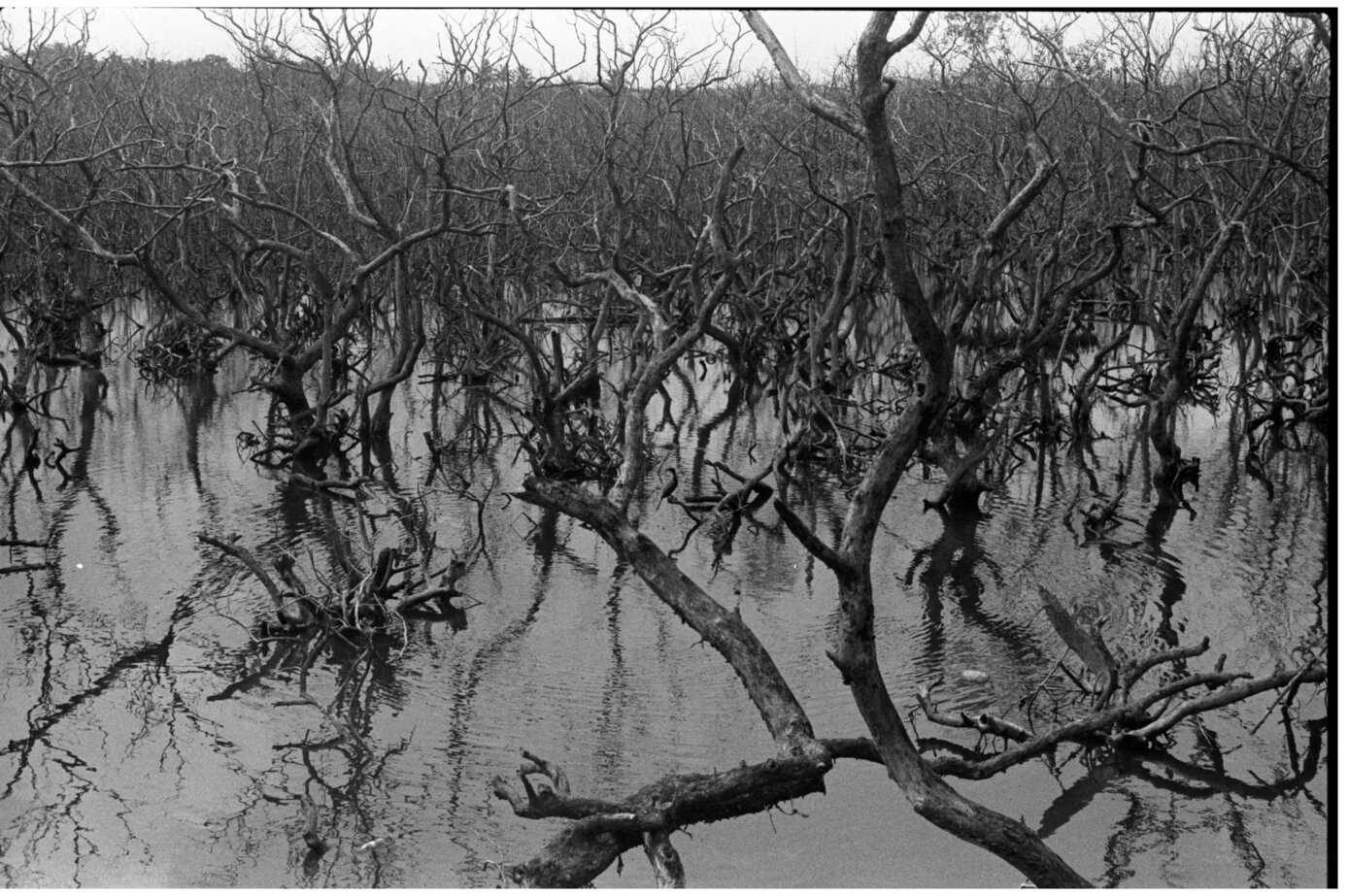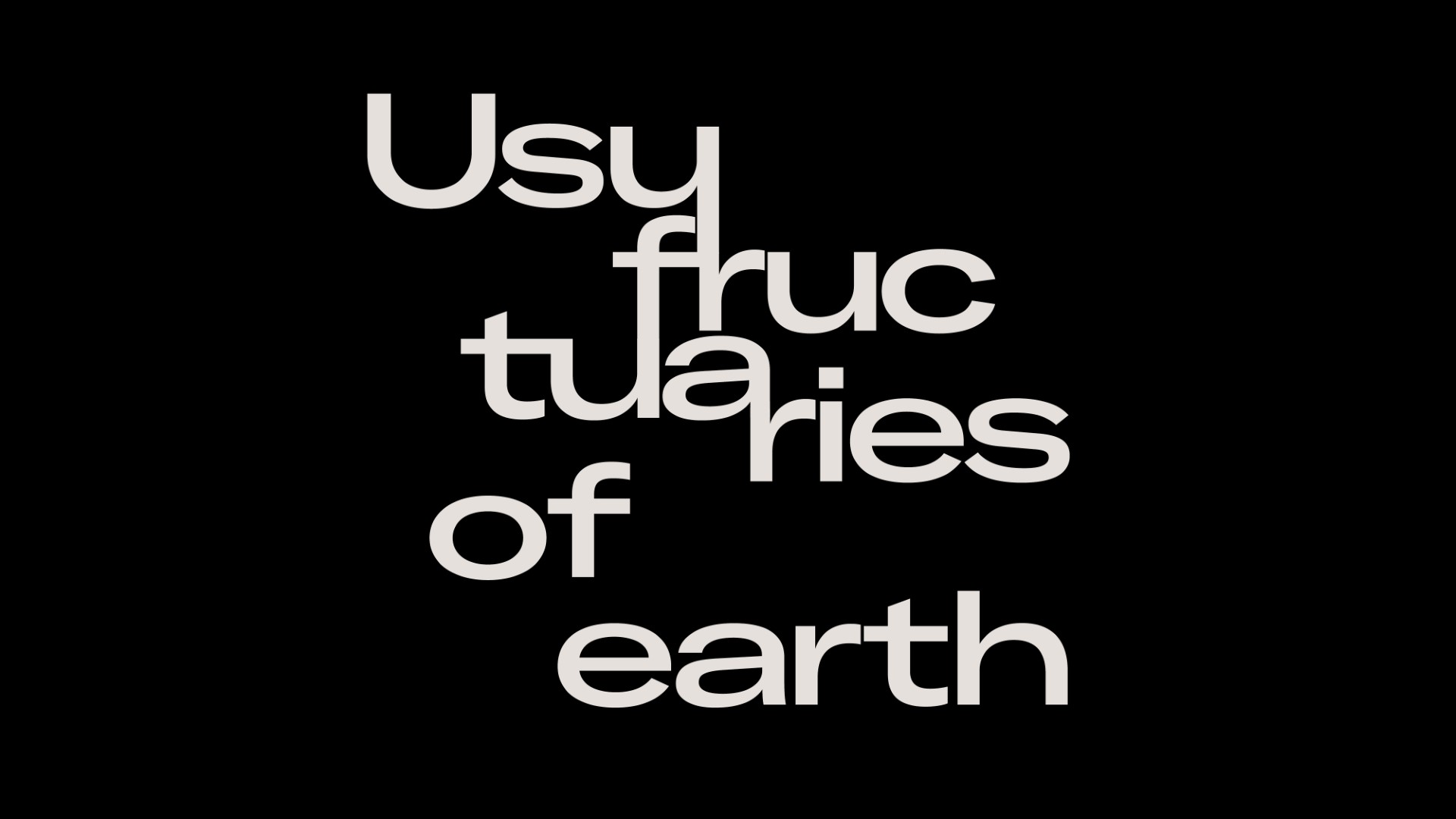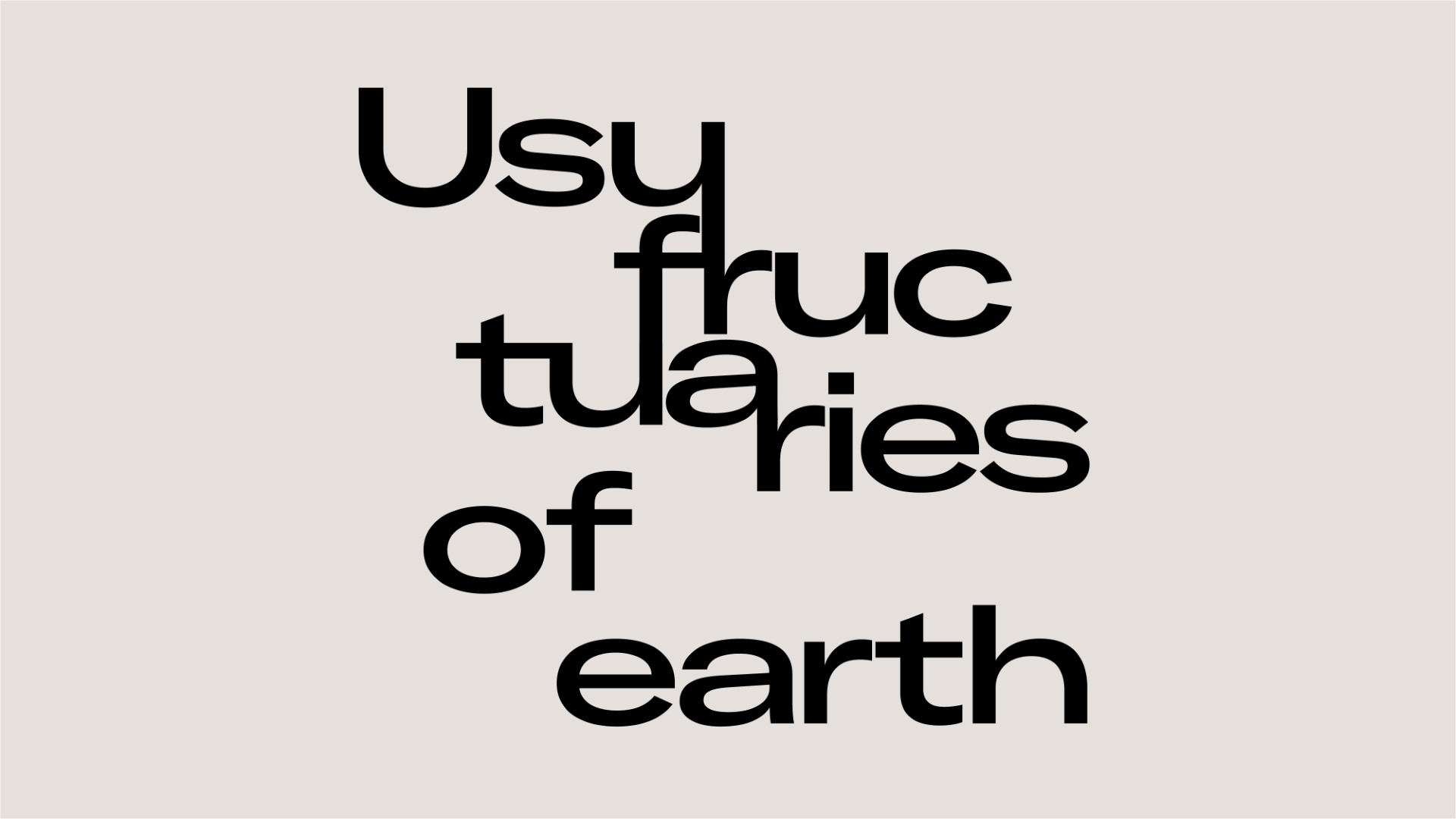Mangroves Growing through the Detention Floor at Bucharest International Airport
Part of The Hauntologists

© Edson Beny Dias
2022, performance by Gayatri Kodikal
30 September 2022, 18-19 hrs, BAK, basis voor actuele kunst, Utrecht
You can reserve your spot by booking a ticket with the link above. The ticket also provides entry to the exhibition on the day of the performance.
Mangrove forests are a tropical coastal ecology on the liminal edges of the colonized world: impenetrable, interstitial, sometimes water, and sometimes land. They let the ocean and its wastage seep in, encircling it through the rhythmic motion of the tidal currents; they are a shapeshifting thing, where multiple histories and languages extend like tentacles and intermingle with no hierarchies. They are, in short, a site of continual refiguration. This is where the mangrove as a natural archive and the mangrove as a game-world are born.
Thinking with the mangrove forest produces a collaborative site for reflection and study. The mangrove forest invokes a cultural charge that contaminates the people that live in it and think with it. This relationality comes forth when people acknowledge a peculiar kind of embodied knowledge as they skirt alongside the dark unknowns, the eerie viscous substrate—a ghostly presence of a void that lives, and, like a dreaming site, produces its own subjective intentionality.
There is no escape out of the mangrove game-world; one can only sink deeper into its tightening grasp—from mud into chaos. Taking from a beating source of cultural and historical imaginations across geographies and time, the mangrove world grows its roots with no sense of territoriality nor fixity. It is the place of escape itself, as well as a place of refuge. The politics of relationality is in the details and in the complexity of interactions in different worldings. In a single misstep, the carefully constructed backdrop of techne—the parameters of knowing and understanding—is withdrawn and the player falls endlessly into the void. The chaos placed outside of order, outside of the system, reveals itself. A story of when mangroves grew in the detention floor of the Bucharest International Airport ensues. The detention floor floats in an in-between space, a threshold that holds the extent of human limit and its contractions. How do you check your privileges of free movement, to be able to travel to any destination with no dire consequences, reaping the rewards of trade and spontaneous flight? For the west, free movement is second nature, an unthought of privilege, and for a large part of the world it is like navigating the dense mangrove game-world.
—Gayatri Kodikal



